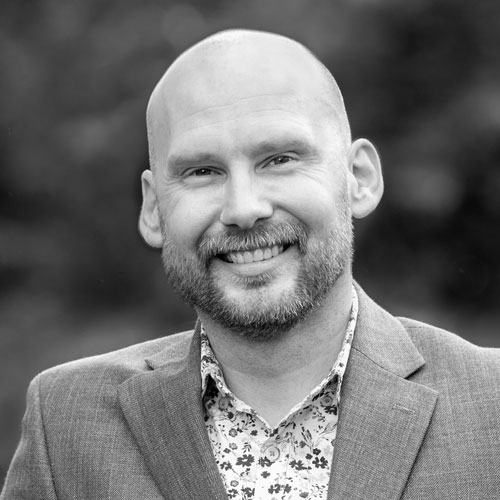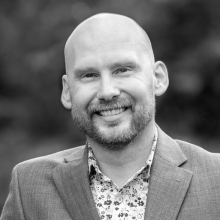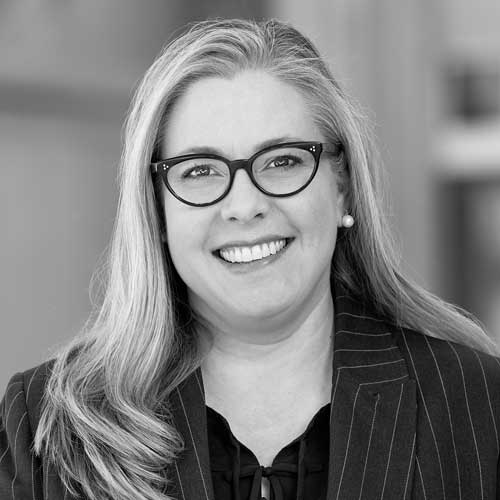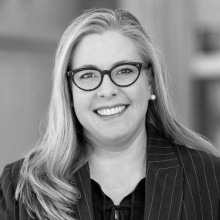IAALS' Comment in Support of the Colorado Licensed Legal Paraprofessionals Program
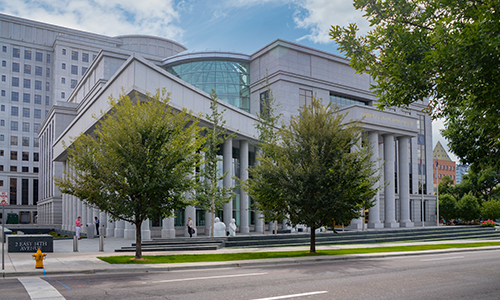 The comment below was submitted by IAALS to the Colorado Supreme Court on September 14, 2022, in support of the Colorado Licensed Legal Paraprofessionals Program.
The comment below was submitted by IAALS to the Colorado Supreme Court on September 14, 2022, in support of the Colorado Licensed Legal Paraprofessionals Program.
On behalf of IAALS, the Institute for the Advancement of the American Legal System, we wish to commend the Colorado Supreme Court, the Advisory Committee on the Practice of Law, and the Providers of Alternative Legal Services (PALS) II Subcommittee for the support and extensive effort that has been devoted to developing this plan for a legal paraprofessional program to combat the access to justice crisis.
IAALS is a national, independent research center at the University of Denver dedicated to continuous improvement of the civil justice system. IAALS identifies and researches issues in the legal system; convenes experts, stakeholders, and users of the system to develop and propose concrete solutions; and then goes one step further to empower and facilitate the implementation of those solutions so as to achieve impact. We are a nonpartisan organization that champions people-first reforms to the legal system and the legal profession. We bring this approach to bear in our work in the area of allied legal professionals and offer the following lessons learned from around the country for the court’s consideration. Thank you for considering our feedback and for your thoughtful work to ensure access to justice for the people of Colorado.
The Need for a Licensed Legal Paraprofessional Program
A well-documented and critical access to justice problem exists in the U.S. today. According to a national 2021 joint study—US Justice Needs—by IAALS and HiiL, The Hague Institute for Innovation of Law, two-thirds of Americans faced at least one legal issue in the past four years.(1) Of the issues experienced, 46 percent either have no expected future resolution or were resolved in a way perceived as unfair. A Pew Research Center study found that, in 2018 alone, less than half of all U.S. households that experienced legal issues sought relief in court.(2) And those who sought such relief largely did so on their own. Studies suggest that over 70 percent of civil(3) and family(4) law cases have at least one party that is self represented. And, while legal aid services and pro bono work are critical in mitigating this issue, reliance on lawyers and these programs is not enough. According to law professor and economist Gillian Hadfield, it would cost roughly $70 billion to provide just one hour of legal help to all the households in America currently facing legal problems.(5) And relying on pro bono work alone is just as unrealistic. If every lawyer in the country did 100 hours more of pro bono work on top of what they already do, this would provide just 30 minutes of legal help to all the households in America currently facing legal problems.(6) (The average amount of pro bono hours provided by the 52 percent of lawyers who provide such services is around 37.(7))
Our current regulations constrict new pathways to accessible legal services and leave consumers with few alternatives. With few exceptions, anyone other than a lawyer providing legal services is engaging in the unauthorized practice of law and can be punished, regardless of whether those services actually help consumers. One solution is allowing a new category of legal professionals to provide legal advice in certain areas of the law as part of a regulated program with education and training requirements. A handful of states have implemented such programs, starting with Washington in 2012.(8)
Over the past year, IAALS has researched the landscape of existing and proposed legal paraprofessional programs across the country as part of its Allied Legal Professionals project. One thing is clear: there is national momentum to make these programs commonplace. To date, there are four states with active programs and around 10 other states with proposals to create such a program. And while these programs are relatively new, with only Washington existing for over five years, the data that has been gathered shows that these legal paraprofessionals are providing competent legal services at a reduced cost. In Washington, for example, their Limited License Legal Technicians (LLLTs) who work at law firms bill around half the hourly rate of attorneys.(9) And attorneys have even reported that LLLTs at their firms were more knowledgeable about family law and required less training than new attorneys.(10) Minnesota’s program is different from the other active states in that it is a pilot program and their legal paraprofessionals require attorney supervision, but the supervising attorneys have touted their work and called them “careful, serious, and excellent.”(11) With the implementation of the Licensed Legal Paraprofessional (LLP) program, Colorado will join these states to make legal services more affordable and address this crisis.
Experience Across the United States Supports Independent Paraprofessionals Who Provide Expanded Services
The experience from other states urges the establishment of independent paraprofessionals who can be effective and successful in service to their clients. IAALS supports the recommendation that LLPs would not need to be supervised by an attorney. Washington, Utah, and Arizona have all created legal paraprofessional programs where attorney supervision is not required. In each of these programs, very few complaints against legal paraprofessionals have been filed, showing that legal paraprofessionals are competent and can provide legal services without the supervision of an attorney. Additionally, this freedom will provide legal paraprofessionals with the ability to work at a pace that is in their client’s best interest, as opposed to the likely bottleneck that would result from needing an attorney to review their work.
The Implementation Report and Plan highlights that LLPs will be able to complete numerous tasks including completing and filing standard pleadings, representing in mediation, and answering factual questions during court hearings. IAALS has conducted multiple studies with self-represented litigants where we heard from them on what they felt were the most difficult aspects of their divorce/separation case. One of the most common struggles self-represented litigants faced was filling out their documents, so allowing LLPs to help their clients with this process will provide a huge relief.(12) Self-represented litigants also struggle with the different oral aspects of a case, including mediations and hearings.(13) LLP clients will greatly benefit from a trained and competent professional helping advocate for them during mediations and answering factual questions during their hearings.
Experience around the country also supports LLPs providing broader support at hearings. The more that LLPs can help create a barrier and reduce stress between the two parties, the more likely all relevant information will be provided to the court to achieve a just outcome. While clients will surely benefit from having an LLP at their hearing to answer factual questions, they will undoubtedly struggle with the rest of the hearing. In family law cases, whether the issue is divorce, child support, or protection orders, there is often an unequal power dynamic that makes confronting the other party difficult and distressing. Evidence exists to show that LLPs would be up to the task of full representation in court. Both Arizona and Minnesota allow their legal paraprofessionals to fully represent clients in court, and while Minnesota’s program requires their legal paraprofessionals to be supervised by an attorney, the attorney is not required to supervise during the hearing itself. To date, there have been no complaints about Arizona LPs’ performance in court, and surveys show that Minnesota’s legal paraprofessionals are up to the task. The supervising attorneys have had no complaints about their performance in court, and judicial officers who have heard cases with legal paraprofessionals have said that they “displayed appropriate decorum in the courtroom and knew the applicable court rules.”(14) Minnesota’s legal paraprofessionals have fewer requirements to enter the program than Colorado’s LLPs would have, and Colorado can include a requirement of courtroom experience—a requirement not even given to attorneys.
IAALS supports the recommendation that LLPs provide legal services in family law as it is a critical area with many people in desperate need of legal help, but we hope that this court will consider expanding beyond family law as this program gets underway because there is great need in other areas—and this limited scope could undermine the program’s success. As mentioned above, family law is one of the practice areas with the highest percentage of self-represented litigants. The PALS II Subcommittee notes that LLPs can assist on a variety of cases within family law, including dissolution, legal separation, allocation of parental responsibility (APR), invalidity of marriage, parentage (in the context of dissolution or APR) petitions, protection orders, motions for remedial contempt citations, post–decree modifications of APR, and child support and/or maintenance. This variety of case types within family law will allow for more people to receive help on their legal issues, and it helps make the program more viable by providing LLPs with a larger pool of potential clients.
A focus on family law will help fill a huge gap of current unmet needs, but there is a legitimate concern around limiting the scope of practice to one area in the law. Washington’s program was sunset due to “the overall costs of sustaining the program and the small number of interested individuals.”(15) Washington limited its program to family law, and while there is no consensus on why exactly there was a small number of interested people, the narrow scope of practice has been considered a prominent reason. The other three states with active programs—and Oregon, whose supreme court recently approved their program—have all included multiple practice areas. And while these states are also struggling to attract a large number of candidates, in their short tenure they have been able to attract more people early on to their programs than Washington was able to achieve. As the scope of practice increases, so does the pool of interested candidates and its viability. IAALS urges this court to consider expanding the scope beyond family law—now or in the future—to address both the needs of the people and the program to ensure success for both.
Broaden Eligibility to Reach the Missing Middle
LLPs have the potential to increase access to legal services for one of the largest segments of the access to justice gap—those who cannot afford a lawyer, but who also do not qualify for legal-aid assistance. The Colorado Access to Justice Commission noted in its recent Findings and Recommendations Following the 2021 Statewide Listen & Learn Tour that one of the key barriers to access to justice for the people of Colorado is the lack of affordable legal advice. This access to justice gap is not just prevalent with lower-income people though, as 40 to 60 percent of middle-income legal needs go unmet. And according to the US Justice Needs survey, family problems are one of the most expensive and time-consuming to resolve. While the LLP program is critical to address this need, it could even be broadened beyond the $200,000 cap on net marital assets. This cap will exclude a large portion of Colorado’s population who are in dire need of legal help and who cannot afford an attorney. Another issue is one that the PALS II Subcommittee highlights in its report: that there will be times where LLPs learn of additional information in the middle of a case that push the total of marital assets over $200,000. The subcommittee suggests in the report that a court can allow representation to continue for good cause, but if good cause is not shown then the client is out of luck in the middle of their case.
Neither Washington, Utah, Arizona, nor Minnesota—all states that allow their legal paraprofessionals to represent clients in family law cases—have put a monetary limit on this practice area, and none of these programs are riddled with complaints by clients. Additionally, none of these states have required their legal paraprofessionals to decline representation when it is apparent that it would raise issues of “significant complexity.” This could put LLPs in a compromising position where they take on a case they feel competent to handle but that the court later determines is significantly complex. Data from both Washington and Minnesota, mentioned above, shows that legal paraprofessionals can handle family law cases, and we believe that Colorado should follow the data. IAALS urges this court to remove the $200,000 limit along with the disqualification of “significantly complex” cases to reach a wider margin of the population that is currently priced out of receiving legal help. If this court feels the need to keep LLPs disqualified from handling “significantly complex” cases, we urge this court to define this term to provide clarity for LLPs on what cases they are permitted to handle.
Conclusion
The medical field has a long and successful history of creating and expanding new categories of professionals to help expand access. Nurse practitioners and physician assistants have grown in numbers and status in recent decades. Law has been much slower to pursue this path, but there is now growing momentum around the country in support of such programs. The recommendations provided in the PALS II Implementation Report and Plan represent a critical effort to address the access to justice crisis in Colorado, and IAALS applauds the PALS II Subcommittee for its leadership, research, outreach, and dedication to creating an effective program. Family law has one of the highest rates of self-represented litigants, and those litigants struggle with many of the tasks with which LLPs will be able to help. The purpose of this program is to provide legal help for people who cannot afford the services of an attorney, and the fewer restrictions we place on LLPs, the better Colorado will be able to achieve this goal.
Endnotes:
1.THE HAGUE INST. FOR INNOVATION OF LAW & INST. FOR THE ADVANCEMENT OF THE AM. LEGAL SYS., JUSTICE NEEDS AND SATISFACTION IN THE UNITED STATES OF AMERICA 31 (2021), https://iaals.du.edu/sites/default/files/documents/publications/justice-needs-and-satisfaction-us.pdf.
2. THE PEW CHARITABLE TRS., HOW DEBT COLLECTORS ARE TRANSFORMING THE BUSINESS OF STATE COURTS 4 (2020), https://www.pewtrusts.org/-/media/assets/2020/06/debt-collectors-to-consumers.pdf.
3. NAT’L CTR. FOR STATE CTS., THE LANDSCAPE OF CIVIL LITIGATION IN STATE COURTS IV (2015),
https://www.ncsc.org/__data/assets/pdf_file/0015/25305/civiljusticereport-2015.pdf.
4. NAT’L CTR. FOR STATE CTS., FAMILY JUSTICE INITIATIVE: THE LANDSCAPE OF DOMESTIC RELATIONS CASES IN STATE COURTS 20 (2018), https://www.ncsc.org/__data/assets/pdf_file/0018/18522/fji-landscape-report.pdf.
5. GILLIAN K. HADFIELD & JAMIE HEINE, LIFE IN THE LAW-THICK WORLD: THE LEGAL RESOURCE LANDSCAPE FOR ORDINARY AMERICANS 37 (2015), https://papers.ssrn.com/sol3/papers.cfm?abstract_id=2547664.
6. Id.
7. AM. BAR ASS’N STANDING COMM. ON PRO BONO & PUB. SERV. AND THE CTR. FOR PRO BONO, SUPPORTING JUSTICE: A REPORT ON THE PRO BONO WORK OF AMERICA’S LAWYERS 6 (2018), https://www.americanbar.org/content/dam/aba/administrative/probono_public_service/ls_pb_supporting_justice_iv_final.pdf.
8. Utah implemented its program in 2018. Arizona and Minnesota implemented their programs in 2021. The Oregon Supreme Court just approved the implemented of its program in July 2022.
9. JASON SOLOMON & NOELLE SMITH, THE SURPRISING SUCCESS OF WASHINGTON STATE’S LIMITED LICENSE LEGAL TECHNICIAN PROGRAM 20 (2021), https://law.stanford.edu/wp-content/uploads/2021/04/LLLT-White-Paper-Final-5-4-21.pdf.
10. Id at 12.
11. STANDING COMM. FOR LEGAL PARAPROFESSIONAL PILOT PROJECT, INTERIM REPORT AND RECOMMENDATIONS TO THE MINNESOTA SUPREME COURT 6 (2021), https://www.mncourts.gov/mncourtsgov/media/Appellate/Supreme%20Court/Administrative-Interim-Report-and-Recommendations-from-the-Standing-Committee-for-LPPP.pdf.
12. NATALIE ANNE KNOWLTON ET AL., CASES WITHOUT COUNSEL: RESEARCH ON EXPERIENCES OF SELF-REPRESENTATION IN U.S. FAMILY COURT 32 (2016), https://iaals.du.edu/sites/default/files/documents/publications/cases_without_counsel_research_report.pdf.
13. Id. at 34.
14. STANDING COMM. FOR LEGAL PARAPROFESSIONAL PILOT PROJECT, supra note 11, at 7.
15. Letter from Debra L. Stephens, C.J., Washington Supreme Court, to Stephen R. Crossland et al., Chair, Ltd. License Legal Technician Bd. (June 5. 2020), https://www.wsba.org/docs/default-source/licensing/lllt/1-2020-06-05-supreme-court-letter-to-steve-crossland-et-al.pdf?sfvrsn=8a0217f1_7.
16. CO. ACCESS TO JUST. COMM’N, FINDINGS AND RECOMMENDATIONS FOLLOWING THE 2021 STATEWIDE LISTEN & LEARN TOUR 17 (2022), https://www.coloradoaccesstojustice.org/_files/ugd/c659b2_2f35126a842a49f0abec4ead5ede26da.pdf.
17. Kathryn Graham, Increasing Access to Legal Services for the Middle Class, 33 THE GEO. J. OF LEGAL ETHICS 537, 537 (2020),
https://www.law.georgetown.edu/legal-ethics-journal/wp-content/uploads/sites/24/2020/09/GT-GJLE200022.pdf.
18. THE HAGUE INST. FOR INNOVATION OF LAW & INST. FOR THE ADVANCEMENT OF THE AM. LEGAL SYS., supra note 1, at 30.

